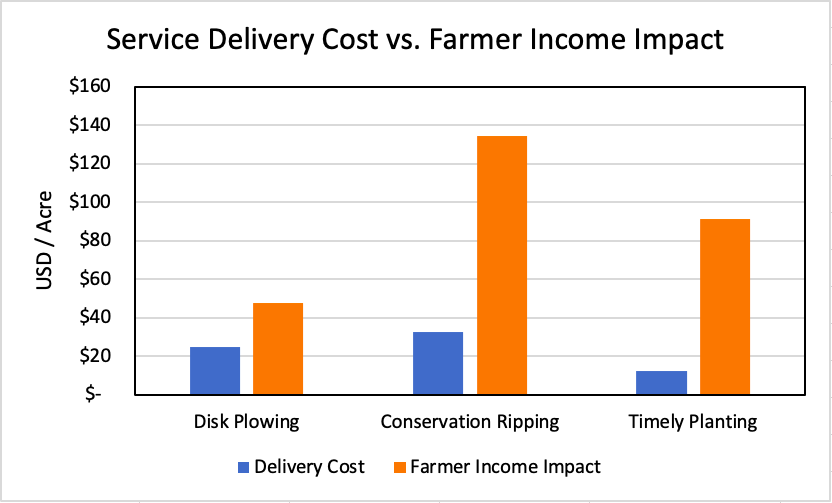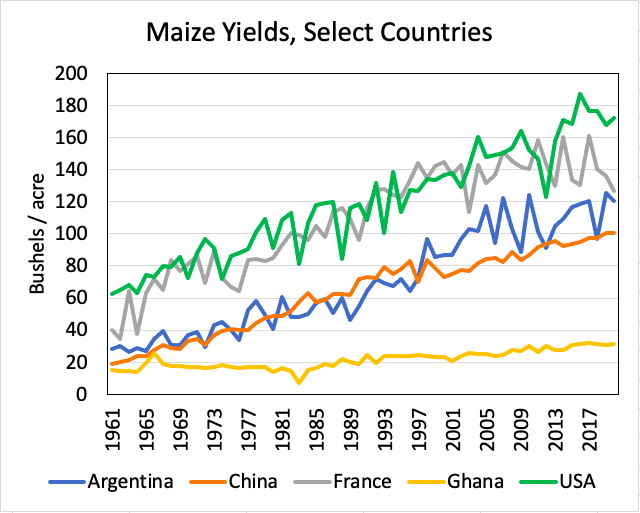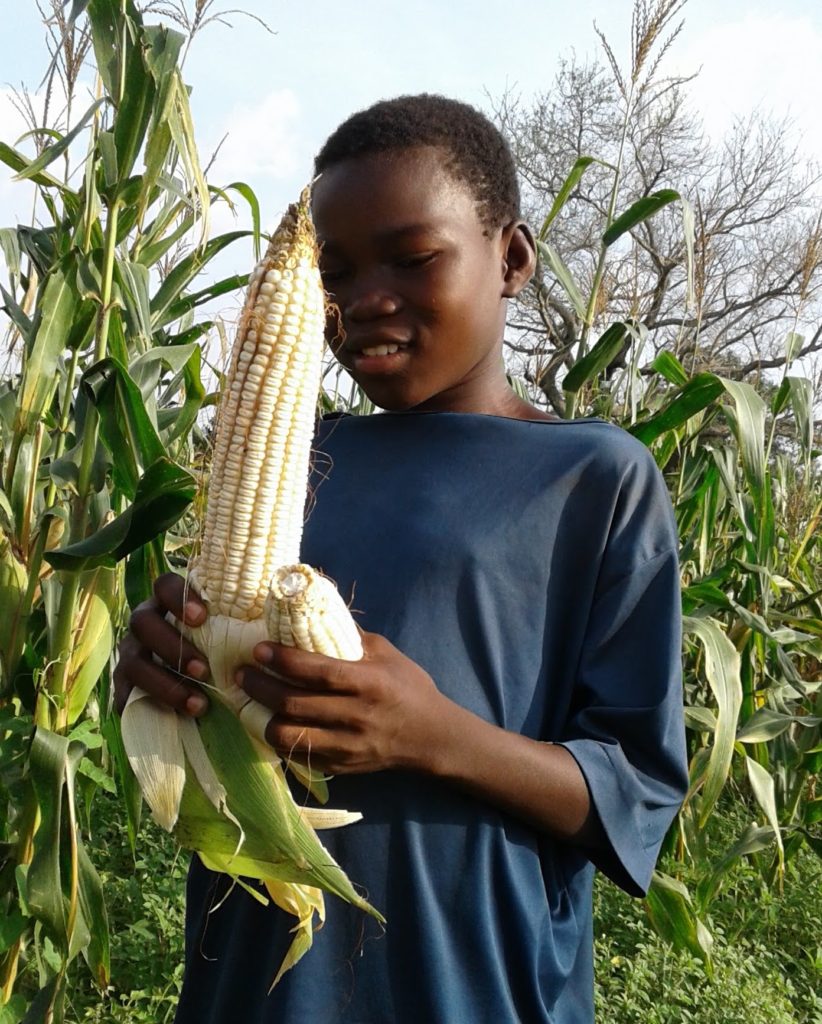Our Mission
Empowering African communities to harvest their agricultural potential.

Tractors for Africa provides agriculture technology to West African farmers with a market-based approach. By providing quality mechanization services, seed, fertilizer, and agronomy advising on credit, we help farmers raise their incomes and standards of living.
The Challenge
Low access to technology, low farm productivity, leading to food insecurity. The average corn yield in the U.S. is 175 bushel per acre. In Sub-Saharan Africa, it is 30. Read more on The Challenge.
![]()
Our Solution
We provide reliable tractor services, seed, fertilizer, and advising – everything a farmer needs to drastically improve yields – on credit. Farmers repay in grain which we market during the dry season, leading toward economic sustainability. We use credit and demonstration farms to move farmers toward Regenerative Agriculture, which requires farmer acceptance and mechanization to scale. Read more on How We Work.
![]()
Our Impact
Farmers who have worked with Tractors for Africa plant earlier, use better inputs, achieve higher yields, and receive higher prices for their grain. Highlights from 2021 include:
- Farmer incomes increased by 118% by working with TFA
- 90% of TFA farms directly benefit women as the leader or partner in their farm’s operation
- Supporting young farmers: 26% of our farmer clients are under 30, which is rare with Ghanaian farmers averaging 55 years old
- Nearly half of farmers in target communities report better access to mechanization thanks to Tractors for Africa
Read more on Our Impact.
Limited Technology
Access to tractors for mechanized farm production is limited. Ghana needs over 30,000 tractors, and they currently operate less than 2,000.
![]() Without tractors, a farmer spends 550 hours per year manually hoeing.
Without tractors, a farmer spends 550 hours per year manually hoeing.
![]() Currently, fertilizer application, weeding, and crop care spraying is performed almost entirely with manual labor.
Currently, fertilizer application, weeding, and crop care spraying is performed almost entirely with manual labor.
![]() Only 2% of seeding and planting is powered by a tractor.
Only 2% of seeding and planting is powered by a tractor.
Mechanization provides the power to prepare fields better and plant on time, raising yields.

Low Farm Productivity
Productivity and yield are also limited due to lack of access to improved seeds, fertilizer, crop care chemicals, extension advising to improve agronomic practices, input financing, and access to a cash market to sell production. Today, it is estimated that 40% of Africa’s soils are severely depleted, reducing yield potential.
Global maize yields continue climb, highlighting unrealized potential for Ghana (FAOSTAT, 1961-2020)

Regenerative Agriculture
Implementing Regenerative Agricultural Practices can improve soil health and improve yield potential. To implement Regenerative Agricultural Practices at scale requires farmer acceptance and mechanization for adoption. We use demonstration plots and credit to show farmers the benefits and make it easy for them to adopt Regenerative Agriculture.


